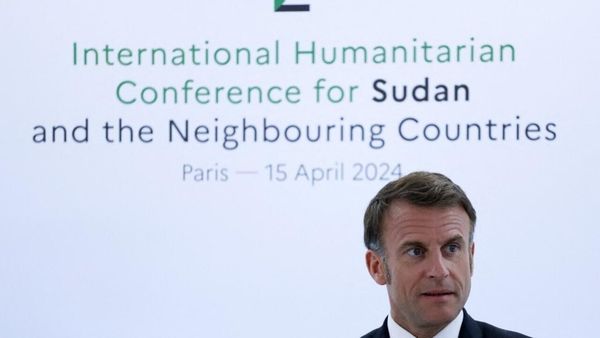
Let’s start with the good news: our lives are getting longer, and quite fast. You can see it in the graphs produced by the Marmot Index, which plots health data against small geographic areas over time. In the decade to 2013, the average man added three years to his life expectancy and the average woman two and a half years. It’s startling to contemplate a tangible increase in longevity over such a short space of time, because our mental image of this process is long-term and linear.
Equally startling is the bad news. Inequality is also rising, and with it, inequalities of health. Sir Michael Marmot, who released his annual report on the social determinants of health in England on Friday, found that just under a quarter of English households don’t earn enough to live healthily. That has increased from 20% in 2008.
Marmot plots both life expectancy and the years you can expect to live free of a disability. As you would expect, people live longer in richer neighbourhoods. But the clearest inequalities are found when it comes to disability. A man in Blackpool – the poorest neighbourhood – could expect to live 55 years without disability. In Wokingham, the richest neighbourhood, you are, on average, going to reach the age of 71 – a difference of more than 16 years.
The starkness of the inequality poses the question: what should a modern welfare state do?
William Beveridge, scraping away at the draft of his 1942 report in the fragile opulence of Eltham Palace, listed “want, disease, squalor, ignorance and idleness” as ills to be remedied by a “comprehensive programme of social progress”. Given what the welfare state has become – a series of cash-strapped essential services plus highly conditional dole and disability payments – it’s interesting to follow Beveridge’s original argument.
Giving people enough money to live on, Beveridge argued, was the foundation of everything else: health, education and sanitation could not be improved without abolishing “want”. This would be done through a contributory social insurance scheme: every employee pays in and, as of right, gets unemployment, disability, healthcare, child benefits and a state pension.
For Beveridge’s generation, the labour market had been a cruel switchback ride. Real wages were rising for those in work, but sudden and repeated joblessness, plus slum conditions, created large pockets of inescapable poverty. Today’s labour market is different: we’re good at creating low-paid, precarious jobs. And Marmot’s report claims to show this new “working poverty” is having a tangible downward impact on wellbeing and work-related illness.
A glance at last week’s autumn statement shows how skewed away from the question of “want” – ie incomes – the welfare state has become. Almost everything ringfenced or protected is a service: the NHS, schools, policing or social care. The superstructure Beveridge conceived as rising atop a system of guaranteed incomes, we have, over the decades, turned into the structure itself. The amount spent on incomes for the jobless, low-paid and disabled is to be relentlessly borne down upon.
There is a logic to it. For a non-starving population, with the open sewers closed and the unsanitary homes demolished, redistribution best happens by giving free and equal access to otherwise expensive things: schooling and healthcare. There is a logic, too, in ringfencing the one cash benefit from the Beveridge era that is still protected: the state pension. If the population is getting older, then focusing more of social wealth on retired people in the form of cash makes sense.
But given the rise in working poverty, we’re in danger of creating a system that delivers the opposite of a “comprehensive policy of social progress”. The tough decisions on spending are taking resources very clearly from two groups: the young and the poor.
The Institute for Fiscal Studies produced a long-term impact graph of the Conservatives’ benefit changes, factoring in universal credit and other limits introduced last summer. It showed a pronounced negative impact on the poorest third of the population, who lose between 5-8% of their incomes due to the new welfare priorities. Analysis of the wider spending plans shows the amount of public money spent on the old and sick rises from 35% before the crisis to 42% by 2020.
It is very possible to be poor in the 21st-century welfare state. One in five children lives in poverty, and this decade will see the first rise in absolute poverty in a generation. For decade after decade, post-war governments have chipped away at the principle of social insurance: you pay your stamps, you get your cash benefits as of right. The result is a world-class health system struggling to deal with large-scale, growing ill health determined by poverty. Even if we all live longer, the poor live shorter lives and will spend decades in disability.
So what would a modern Beveridge write? I think he would reiterate that “want” – or poverty – is the basic evil that, if you don’t abolish, drags down all your attempts at making people healthier or better educated. It’s very obvious – to anybody who has been near a food bank, or a women’s refuge, or a probation office – that “want, ignorance, squalor, disease and idleness” still exist, at disgraceful levels, and in highly concentrated pockets. A 16-year gap in healthy life expectancy between Blackpool and Wokingham – towns a three-hour journey apart – would shock us into action if we really cared about it.
And here’s why we should care: health inequality follows a clear gradient path. If you break down the population into 5% chunks according to income, every one of these chunks is healthier than the one below them. The editor, on average, dies of heart attack later than the deputy editor. This is one of the clearest findings of Marmot’s and other epidemiological research.
So inequality is not just about rich and poor – it’s about the tilted playing field of life, and how to stop it getting steeper.






